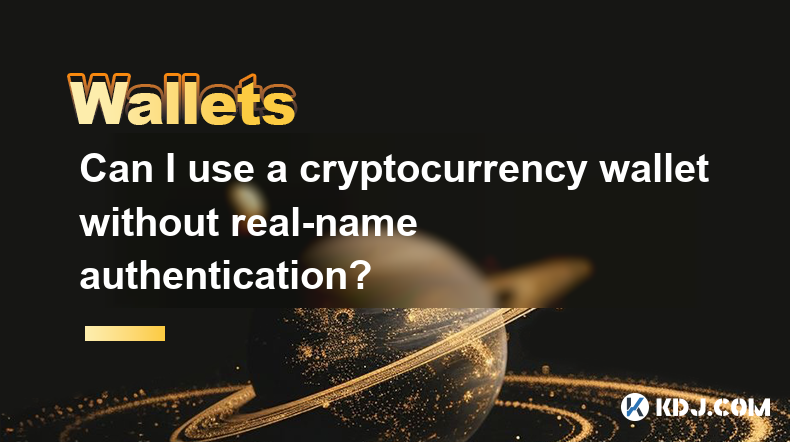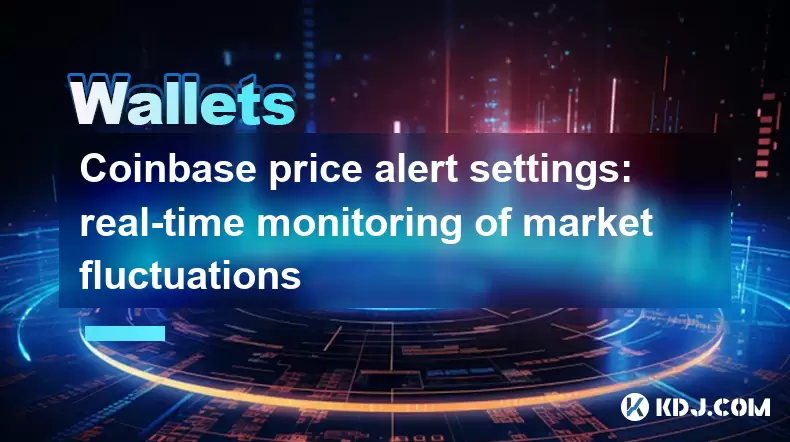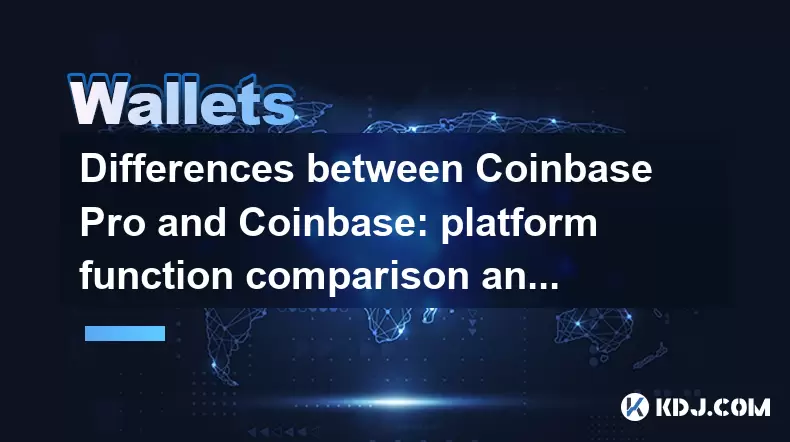-
 Bitcoin
Bitcoin $107,341.7259
0.15% -
 Ethereum
Ethereum $2,438.6204
0.70% -
 Tether USDt
Tether USDt $1.0003
-0.02% -
 XRP
XRP $2.1866
1.94% -
 BNB
BNB $649.0952
0.36% -
 Solana
Solana $150.9602
5.63% -
 USDC
USDC $0.9999
0.00% -
 TRON
TRON $0.2742
0.40% -
 Dogecoin
Dogecoin $0.1645
1.93% -
 Cardano
Cardano $0.5669
1.18% -
 Hyperliquid
Hyperliquid $37.8286
4.19% -
 Bitcoin Cash
Bitcoin Cash $491.4669
-2.74% -
 Sui
Sui $2.8150
3.06% -
 Chainlink
Chainlink $13.4184
2.91% -
 UNUS SED LEO
UNUS SED LEO $9.0809
0.27% -
 Avalanche
Avalanche $18.0295
2.60% -
 Stellar
Stellar $0.2396
1.19% -
 Toncoin
Toncoin $2.8587
0.13% -
 Shiba Inu
Shiba Inu $0.0...01160
2.59% -
 Litecoin
Litecoin $86.4192
1.45% -
 Hedera
Hedera $0.1486
1.19% -
 Monero
Monero $308.4324
0.87% -
 Polkadot
Polkadot $3.4202
1.43% -
 Bitget Token
Bitget Token $4.6436
-0.34% -
 Dai
Dai $0.9998
-0.02% -
 Ethena USDe
Ethena USDe $1.0002
0.00% -
 Uniswap
Uniswap $7.1527
3.29% -
 Pi
Pi $0.5357
-8.45% -
 Pepe
Pepe $0.0...09588
4.61% -
 Aave
Aave $259.9759
0.81%
Can I use a cryptocurrency wallet without real-name authentication?
Cryptocurrency wallets vary in privacy; hardware wallets like Ledger don't require real-name auth, while online wallets like Coinbase often do for regulatory compliance.
Apr 02, 2025 at 03:14 pm

Cryptocurrency wallets have become increasingly popular as digital assets gain traction in the financial world. One of the key concerns for many users is privacy, leading to the question: The answer to this question varies depending on the type of wallet and the specific platform or service being used. In this article, we will explore the different types of cryptocurrency wallets, their authentication requirements, and the implications of using a wallet without real-name verification.
Types of Cryptocurrency Wallets
Cryptocurrency wallets come in various forms, each with its own set of features and security measures. The primary types of wallets include hardware wallets, software wallets, and online wallets.
Hardware Wallets: These are physical devices that store your private keys offline. Examples include Ledger and Trezor. They are considered highly secure and typically do not require real-name authentication to set up or use.
Software Wallets: These are applications installed on your computer or mobile device. Examples include Exodus and Electrum. Some software wallets may require real-name authentication, especially if they are linked to centralized exchanges.
Online Wallets: Also known as web wallets, these are accessible via the internet. Examples include Coinbase and Blockchain.com. Online wallets often require real-name authentication due to regulatory compliance.
Wallets Without Real-Name Authentication
There are several cryptocurrency wallets that do not require real-name authentication. These wallets prioritize user privacy and are often preferred by those who wish to maintain anonymity.
Non-Custodial Wallets: These wallets allow you to retain full control over your private keys. Examples include MetaMask and Trust Wallet. Since you manage your own keys, no real-name authentication is required.
Decentralized Wallets: These wallets operate on decentralized platforms and do not require any personal information. Examples include MyEtherWallet and Argent. They focus on user privacy and security without compromising on functionality.
Anonymous Wallets: Some wallets are specifically designed to enhance user anonymity. Examples include Wasabi Wallet and Samourai Wallet. These wallets often incorporate additional privacy features like coin mixing to further obscure transaction trails.
Implications of Using Wallets Without Real-Name Authentication
Using a cryptocurrency wallet without real-name authentication has several implications that users should be aware of.
Privacy and Anonymity: The primary advantage is enhanced privacy. Without real-name authentication, it is more difficult for third parties to track your transactions or link them to your identity.
Regulatory Risks: Some jurisdictions have strict regulations regarding cryptocurrency transactions. Using a wallet without real-name authentication may be against local laws, potentially leading to legal consequences.
Security Concerns: While non-custodial and decentralized wallets offer high levels of security, they also place the responsibility of managing private keys on the user. Losing your keys means losing access to your funds permanently.
Exchange Limitations: If you wish to trade on centralized exchanges, you may need to transfer funds to a wallet that requires real-name authentication. This can be inconvenient and may defeat the purpose of using an anonymous wallet.
How to Set Up a Wallet Without Real-Name Authentication
Setting up a cryptocurrency wallet without real-name authentication is straightforward but requires careful attention to security. Here are the steps to follow:
Choose the Right Wallet: Select a wallet that does not require real-name authentication. Popular options include MetaMask, Trust Wallet, and MyEtherWallet.
Download and Install: If you are using a software wallet, download the application from the official website. For hardware wallets, purchase from a reputable source and follow the setup instructions.
Create a New Wallet: Follow the wallet's instructions to create a new wallet. This usually involves generating a new address and private key.
Secure Your Private Keys: It is crucial to keep your private keys safe. Write them down and store them in a secure location. For hardware wallets, follow the manufacturer's guidelines for securing your device.
Fund Your Wallet: Once your wallet is set up, you can transfer cryptocurrency to it from an exchange or another wallet. Ensure you double-check the wallet address before sending any funds.
Use Cases for Wallets Without Real-Name Authentication
Wallets without real-name authentication are particularly useful in several scenarios:
Privacy-Conscious Users: Individuals who prioritize privacy and wish to keep their financial activities confidential can benefit from these wallets.
Decentralized Finance (DeFi): Many DeFi platforms require users to interact with decentralized wallets. These wallets are ideal for engaging with DeFi applications without compromising on privacy.
Cross-Border Transactions: For those involved in cross-border transactions, using a wallet without real-name authentication can simplify the process and reduce the need for extensive documentation.
Educational Purposes: Beginners looking to learn about cryptocurrencies can start with a wallet that does not require real-name authentication, allowing them to experiment without immediate regulatory concerns.
Challenges and Considerations
While wallets without real-name authentication offer significant benefits, there are also challenges and considerations to keep in mind:
Regulatory Compliance: As regulations around cryptocurrencies evolve, using anonymous wallets may become more challenging. Users must stay informed about the legal landscape in their jurisdiction.
Security Management: Managing your own private keys requires a high level of security awareness. Users must be diligent about protecting their keys and understanding the risks of self-custody.
Limited Functionality: Some wallets without real-name authentication may offer fewer features compared to their counterparts that require personal information. Users may need to balance privacy with functionality.
Interoperability: Transferring funds between different types of wallets can be complex. Users should ensure they understand the compatibility between their chosen wallet and other platforms they wish to use.
Future Trends in Cryptocurrency Wallets
The landscape of cryptocurrency wallets is continually evolving, and future trends may impact the use of wallets without real-name authentication:
Increased Privacy Features: As privacy becomes a more significant concern, wallet developers are likely to introduce advanced privacy features, such as enhanced coin mixing and zero-knowledge proofs.
Regulatory Adaptation: Wallet providers may need to adapt to changing regulations, potentially leading to a shift in how non-custodial and anonymous wallets operate.
User-Friendly Interfaces: To attract more users, wallet developers may focus on creating more user-friendly interfaces that simplify the process of managing private keys and using decentralized applications.
Integration with DeFi: As DeFi continues to grow, wallets without real-name authentication may become more integrated with these platforms, offering seamless access to a wide range of financial services.
Common Questions Related to Cryptocurrency Wallets Without Real-Name Authentication
Q: Can I use a hardware wallet without real-name authentication?
A: Yes, most hardware wallets like Ledger and Trezor do not require real-name authentication to set up or use. They focus on security and allow users to manage their private keys independently.
Q: Are there any risks associated with using wallets without real-name authentication?
A: Yes, there are risks. These include potential regulatory issues, the responsibility of managing your own private keys, and limitations when interacting with centralized exchanges that require real-name verification.
Q: Can I transfer funds from a wallet without real-name authentication to an exchange?
A: Yes, you can transfer funds to an exchange, but you may need to use a wallet that requires real-name authentication to complete the transaction on the exchange side.
Q: How can I ensure the security of my funds in a wallet without real-name authentication?
A: To ensure the security of your funds, always keep your private keys safe, use strong passwords, enable two-factor authentication if available, and regularly update your wallet software.
Q: Are there any legal implications of using a wallet without real-name authentication?
A: The legal implications vary by jurisdiction. In some countries, using anonymous wallets may be against regulations. It's essential to stay informed about local laws regarding cryptocurrency usage.
Q: Can I use a wallet without real-name authentication for everyday transactions?
A: Yes, you can use such wallets for everyday transactions, especially if you are engaging with decentralized platforms or peer-to-peer transactions. However, for mainstream adoption, you may need to use wallets that comply with real-name verification requirements.
Disclaimer:info@kdj.com
The information provided is not trading advice. kdj.com does not assume any responsibility for any investments made based on the information provided in this article. Cryptocurrencies are highly volatile and it is highly recommended that you invest with caution after thorough research!
If you believe that the content used on this website infringes your copyright, please contact us immediately (info@kdj.com) and we will delete it promptly.
- Bitcoin Wallets: Safeguarding Your Cryptocurrency Assets Like a New Yorker
- 2025-06-29 16:50:12
- Dogwifhat, Crypto Rally, and the Unexpected Challenger: A Meme Coin Mania?
- 2025-06-29 16:30:12
- Pi Network's Token Unlock: Sell-Off Fears or Future Fuel?
- 2025-06-29 16:30:12
- Altcoin Update: Vitalik Buterin on Major Changes in Governance and Digital Identity
- 2025-06-29 17:07:13
- Bitcoin Price, Moving Averages, and the Liftoff Question
- 2025-06-29 16:56:46
- Ripple's $RLUSD and the Stablecoin Boom: What's the Deal?
- 2025-06-29 17:15:12
Related knowledge

Coinbase price alert settings: real-time monitoring of market fluctuations
Jun 29,2025 at 07:00am
Setting Up Coinbase Price AlertsTo begin real-time monitoring of market fluctuations on Coinbase, users can utilize the built-in price alert feature. This function allows you to receive notifications when a cryptocurrency reaches a specific price point. To access this setting, open the Coinbase app or log in via the web platform. Navigate to the 'Prices...

How to stake cryptocurrencies on Coinbase? Benefits and risks
Jun 27,2025 at 06:36pm
Understanding Cryptocurrency Staking on CoinbaseStaking cryptocurrencies involves locking up digital assets to support the operations of a blockchain network, typically in return for rewards. Coinbase, one of the most popular cryptocurrency exchanges globally, offers staking services for several proof-of-stake (PoS) coins. Users can stake their holdings...

Differences between Coinbase Pro and Coinbase: platform function comparison and analysis
Jun 29,2025 at 08:21am
Overview of Coinbase and Coinbase ProWhen exploring the cryptocurrency trading landscape, users often encounter two platforms under the same parent company: Coinbase and Coinbase Pro. While both are operated by the same organization, they cater to different types of users and offer varying features. Coinbase is primarily designed for beginners and casua...

How to contact Coinbase customer service? Support channels and response times
Jun 28,2025 at 01:29pm
Contacting Coinbase Customer Service: Support Channels and Response TimesIf you're a user of Coinbase, reaching their customer service team may become necessary for various reasons, such as account verification issues, transaction disputes, or technical difficulties. Understanding the different support channels available and what to expect in terms of r...

Coinbase advanced trading function usage tutorial: limit orders and market orders
Jun 28,2025 at 09:07pm
Understanding the Difference Between Limit Orders and Market OrdersWhen using Coinbase's advanced trading features, it is crucial to understand the fundamental difference between limit orders and market orders. A market order executes immediately at the best available price on the market. This type of order ensures that your trade goes through quickly, ...

How to sell Bitcoin on Coinbase? Detailed transaction steps
Jun 29,2025 at 04:22am
Setting Up Your Coinbase Account for TransactionsBefore you can sell Bitcoin on Coinbase, you must ensure your account is fully set up and verified. Coinbase requires identity verification to comply with regulatory standards. This process involves uploading a government-issued ID, confirming your address, and sometimes submitting a selfie holding the ID...

Coinbase price alert settings: real-time monitoring of market fluctuations
Jun 29,2025 at 07:00am
Setting Up Coinbase Price AlertsTo begin real-time monitoring of market fluctuations on Coinbase, users can utilize the built-in price alert feature. This function allows you to receive notifications when a cryptocurrency reaches a specific price point. To access this setting, open the Coinbase app or log in via the web platform. Navigate to the 'Prices...

How to stake cryptocurrencies on Coinbase? Benefits and risks
Jun 27,2025 at 06:36pm
Understanding Cryptocurrency Staking on CoinbaseStaking cryptocurrencies involves locking up digital assets to support the operations of a blockchain network, typically in return for rewards. Coinbase, one of the most popular cryptocurrency exchanges globally, offers staking services for several proof-of-stake (PoS) coins. Users can stake their holdings...

Differences between Coinbase Pro and Coinbase: platform function comparison and analysis
Jun 29,2025 at 08:21am
Overview of Coinbase and Coinbase ProWhen exploring the cryptocurrency trading landscape, users often encounter two platforms under the same parent company: Coinbase and Coinbase Pro. While both are operated by the same organization, they cater to different types of users and offer varying features. Coinbase is primarily designed for beginners and casua...

How to contact Coinbase customer service? Support channels and response times
Jun 28,2025 at 01:29pm
Contacting Coinbase Customer Service: Support Channels and Response TimesIf you're a user of Coinbase, reaching their customer service team may become necessary for various reasons, such as account verification issues, transaction disputes, or technical difficulties. Understanding the different support channels available and what to expect in terms of r...

Coinbase advanced trading function usage tutorial: limit orders and market orders
Jun 28,2025 at 09:07pm
Understanding the Difference Between Limit Orders and Market OrdersWhen using Coinbase's advanced trading features, it is crucial to understand the fundamental difference between limit orders and market orders. A market order executes immediately at the best available price on the market. This type of order ensures that your trade goes through quickly, ...

How to sell Bitcoin on Coinbase? Detailed transaction steps
Jun 29,2025 at 04:22am
Setting Up Your Coinbase Account for TransactionsBefore you can sell Bitcoin on Coinbase, you must ensure your account is fully set up and verified. Coinbase requires identity verification to comply with regulatory standards. This process involves uploading a government-issued ID, confirming your address, and sometimes submitting a selfie holding the ID...
See all articles

























































































